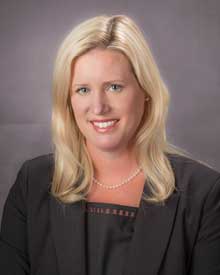Co-Author: Michael Smeenk, Esq.
When Can an Attorney Testify in a Will Contest Proceeding?
Many people have wills in place when they die to ensure there is a proper roadmap for distribution of their assets upon death, consistent with their intentions and wishes. Sometimes a person (the “testator”) wishes to change their will in the final days, months or years that they are alive. In doing so, the testator may request assistance from someone close to them – a family member or other loved one – to make the desired changes. The testator may or may not work with an attorney in preparing or revising their will. However, if the person who assists the testator in changing their will is also a beneficiary or fiduciary under the will, a legal presumption arises that the assisting party unduly influenced the testator’s will revisions.
Many clients who consult with an estate planning attorney for creating a last will do so voluntarily and under their own volition. However, as referenced above, sometimes changes to the disposition of estate assets can be influenced by someone close to the testator. Particularly where a will cuts out beneficiaries or leaves beneficiaries with smaller shares of the estate than was previously expected, those beneficiaries may seek to challenge the validity of the will. Thus, it is extremely important for any individual, but particularly an individual who wishes to change their will towards the end of their life, to work with an attorney to ensure that the will is considered valid under Colorado law and will be upheld in the event that it is challenged.
If the validity of the will is challenged, the testator’s estate planning attorney may testify as to the intent and cognitive function of the deceased client under the “testamentary exception” doctrine. In such a case, testimony from the estate planning attorney who prepared the will or otherwise advised the testator about the will may be a deciding factor in determining the will’s validity. The attorney’s testimony can speak to both the testator’s intentions and mental capacity to make the will revisions.
In certain circumstances, Colorado law permits a testator’s estate planning attorney or another attorney with the same firm to represent a client who is seeking to validate the terms of a testator’s last will, should it be challenged. In such a case, one attorney in the firm will represent the party seeking to have the will validated by the court – perhaps an estate beneficiary or the nominated personal representative. Meanwhile, the testator’s attorney may testify separately regarding the testator’s state of mind at the time the will was created.
However, clients and attorneys must consider a number of factors when determining whether it is advisable for a law firm to both represent the party seeking to enforce the will, while also having represented the testator in preparing the will now being questioned. Specifically, the client and attorney must consider whether the court or opposing party may be prejudiced by the multi-faceted representation. The parties should also consider whether a conflict of interest could arise if the result sought by the party seeking to have the will enforced does not align with the estate planning attorney’s testimony.
As a general matter, an attorney may act as advocate in a trial where another attorney in the same law firm will testify, except in situations involving a conflict an interest. Where a party wishes to work with the law firm who prepared a will to enforce the validity of that will, conflicts of interest typically are not anticipated. Presumably the estate planning attorney wouldn’t have assisted in the preparation of the will if that attorney had reason to believe that the testator lacked capacity or was subject to undue influence. However, to comply with legal and ethical obligations, the proposed advocate attorney should require the client to execute an informed consent waiver as a condition of the firm’s continued representation. Doing so protects both the client and attorney by clearly describing the material risks of a potential conflict arising and the reasonably available alternatives to the continued representation.
In summary, in certain circumstances, testimony from the testator’s estate planning attorney may be extremely important in a will contest case, as it may be the best evidence available to demonstrate the testator’s intent when preparing their last will and testament. Our firm works with clients to prepare estate planning documents, as well as to ensure that estate planning instruments are properly interpreted and administered after someone dies. Please contact us if you have questions about the interpretation or validity of a will, or if you are a party in a will contest action.

